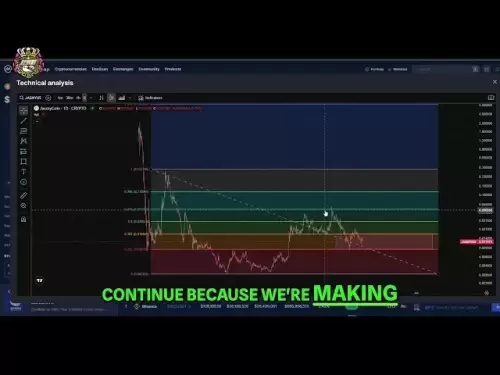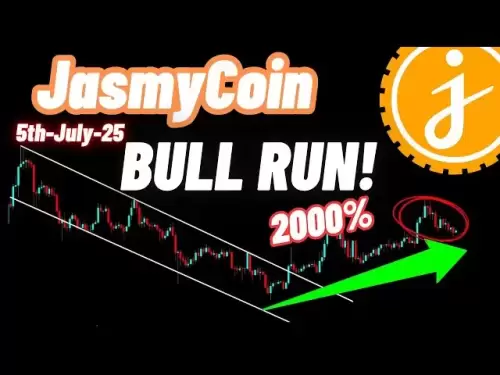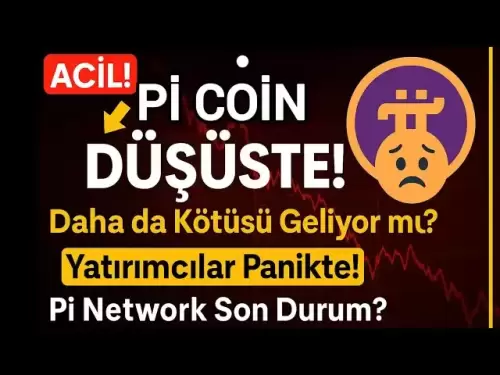 |
|
 |
|
 |
|
 |
|
 |
|
 |
|
 |
|
 |
|
 |
|
 |
|
 |
|
 |
|
 |
|
 |
|
 |
|
Cryptocurrency News Articles
What is data verification in web3? Who needs it, and how does Space and Time’s (SxT) Proof of SQL ensure correct and consistent data?
Aug 01, 2024 at 10:04 pm
Trustless offchain infrastructure connected to smart contracts is becoming increasingly important, from foundational oracles to recent zero-knowledge-proven

Web3 applications heavily rely on data from the blockchain and external sources to make critical decisions, such as liquidations, insurance claims, and lending approvals. However, ensuring the accuracy and consistency of this data is paramount, especially when integrating it into smart contracts. This is where data verification comes into play.
Data verification in web3 involves techniques and protocols that attest to the integrity and correctness of data used by decentralized applications (dApps) and smart contracts. It ensures that the data being utilized has not been tampered with or altered in any way throughout its journey from the source to the application.
Importance of Data Verification in Web3
There are several key players in the web3 ecosystem who stand to benefit from robust data verification solutions:
dApp Developers: Accurate and verifiable data is crucial for developers building applications that rely on external information. Data verification ensures that their applications are functioning as intended and making decisions based on reliable data.
Smart Contract Auditors: Verifying the accuracy of data used in smart contracts is essential during the auditing process. Data verification helps auditors assess whether the contracts are using the correct data and if any potential risks or vulnerabilities exist due to faulty or manipulated data.
DeFi Protocols: Many DeFi protocols, such as lending and derivatives platforms, rely heavily on accurate and consistent data for critical operations like liquidations, price feeds, and options pricing. Data verification ensures that these protocols are using the correct data to perform these functions effectively.
NFT Marketplaces: NFT marketplaces require verifiable data to accurately display and track the ownership, authenticity, and metadata associated with NFTs. Data verification helps maintain the integrity of the marketplaces and ensures that users can trust the information being presented.
SxT's Proof of SQL for Verifiable Data Queries
One notable solution that addresses the need for data verification is Proof of SQL from Space and Time (SxT). It enables efficient and verifiable data queries to be executed off-chain, ensuring the accuracy and integrity of the results. Here's how Proof of SQL contributes to ensuring correct and consistent data:
SxT collects blockchain data from major chains in web3, amounting to nearly 100TB. This vast dataset is meticulously curated and optimized for efficient querying.
Developers can submit SQL queries against SxT's chain, specifying the data they need from Era, other EVM chains, or their own ZK chain. These queries can be used to retrieve any relevant information, such as token balances, historical prices, or NFT ownership records.
SxT executes the queries off-chain and generates a ZK proof attesting to the accuracy and consistency of the results. This proof is then returned on-chain and can be verified by any smart contract.
The verified data queries can be seamlessly integrated into various applications within the Elastic Chain ecosystem. For instance, contracts deployed on those chains can directly call the SxT chain to obtain proven data.
By leveraging SxT's Proof of SQL, developers can construct advanced DeFi applications on zkSync that effortlessly integrate off-chain data. Some practical use cases include:
Fetching historical prices from Era or other EVM chains to power decentralized exchanges (DEXes) on zkSync.
Querying on-chain Era data to assess liquidations and facilitate lending applications within the zkSync ecosystem.
Performing complex data aggregations across Era and zkSync to enable advanced trading strategies and DeFi applications.
SxT is committed to continuing innovations in the zero-knowledge proof space. As AI agents are increasingly expected to transact mainly on-chain in the coming years, SxT believes that tamperproof data and provable computation will play a vital role in empowering these agents and AI models.
Disclaimer:info@kdj.com
The information provided is not trading advice. kdj.com does not assume any responsibility for any investments made based on the information provided in this article. Cryptocurrencies are highly volatile and it is highly recommended that you invest with caution after thorough research!
If you believe that the content used on this website infringes your copyright, please contact us immediately (info@kdj.com) and we will delete it promptly.




























































